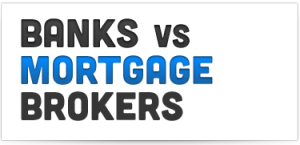Most investors use equity in their current owner occupied and/or investment property to access cash and buy more properties. Tapping into this equity can help investors build wealth more quickly. Most investors do not understand how the equity can be accessed and often end up accessing equity through the wrong structure. Lenders and brokers choose a structure that is favourable to them rather than clients (YOU).
What is cross-collaterisation?
Cross-collaterisation is when once property is used as collateral to secure another loan. So, the lender has two securities against one big loan. This provides extra security for the lender, but is not favourable for the borrower. If the borrower is unable to make repayments on the cross-collaterised loans, the lender can force sale of all collateral in the mix.
Why you should avoid cross-collaterisation?
Here are four reasons why you should avoid cross collaterisation.
1. Lenders have control over all your properties
Banks always put their best interests at heart and try to reduce their risk in every deal as much as possible. What better way to transfer the greater risk to the borrower than to cross-collaterise?
Here is an example:
Property 1 (worth $400,000) and property 2 (worth $400,000) are crossed. Two years later, property 2 has gone up in value by $50,000 and property 1 has gone down in value by $50,000. Your portfolio is still worth $800,000 only.
If you wanted to access the equity in property 2, your lender may restrict and not let you access equity because the two properties are cross-collaterised.
A worse case scenario can be when you want to sell property 2, your lender may not let you do that because the end LVR is not favourable to the lender. However, if your situation makes it necessary to sell property 2, then your lender may need you pay down the loan on property 1 before they will release title.
Cross-collaterisation can greatly restrict your freedom. It leaves your hand tied and puts the power in your lender’s hands and disrupts your investor journey.
2. Refinancing can be difficult
One of the benefits in the current market is that you can shop around to find the best deal and can move from one lender to another with minimal discharge costs. You should review your loan at least once a year and see what else is available.
But if your loans are crossed, you may find it hard to negotiate with your current lender – be it for better rates or to move to another bank, because they exactly know what challenges you will face.
When cross-collaterised, the process can be more hard and tedious. Not only will you face higher exit and/or establishment costs, you will have to revalue your entire portfolio.
3. Ongoing access to equity can be hard
One of the main reasons to refinance is access equity to buy your next property. If you are a seasoned investor, you are not going to stop with one investment property. As your property portfolio grows, you may want to access more equity.
If your properties are crossed, then depending on the mix of properties that have been crossed and their value, you may not be able to access equity. If the bank sees no change in the total value of your property portfolio (as explained in the above example), they will not let you access any equity. This means that you are missing out on buying another property even though you have equity.
Should they all be separate loans, it doesn’t matter to the bank which property has gone up or down in value as they are all stand alone loans as they would have no knowledge about the performance of other properties.
4. You can put your owner occupied house at risk
Many a time, it is your owner occupied property that has considerable equity. If you cross this property with an investment property and should there come a time when you default on your investment loan, your owner occupied property or your principal place of residence is also at risk and you can end losing this house.
I never understand why someone would put their own home at risk because they are saving some $$$ on mortgage insurance or because someone they trust suggests them to cross it. Honestly, the only reason I think is because your bank or broker is getting paid more by crossing. I don’t see any benefits for the borrower – only that you can end up paying mortgage insurance on the whole loan amount (do you know it can cost you tens of thousands of dollars mortgage insurance on a cross-collaterised loan?)
The proper way to access equity
You might have heard rumors that it is necessary to cross-collaterise to secure a good interest rate. That is so not true.
The best way to make sure if your loans are crossed or not is by looking at the part of your loan contract which has the security and see if it mentions one address or two addresses as security. Look for this before you sign the contract, because once you cross the properties it can a nightmare and take ages to uncross it.
As you grow your property portfolio, make sure every loan is secured by one property only.
Here is another example.
Let’s assume you buy a property worth $400,000. You spend $30,000 on minor renovations. The market moves in your favour and within a year the property is now worth $475,000. If you originally borrowed $380,000, you still have the same amount of loan. If your lender will let you top up your loan to 90% of the increased property price, then you will be able to access $47,500 giving you not only the $30,000 you spent but an extra $17,500 that you can put in your offset account or use for further renovations or property purchases.
So, avoid cross-collaterisation and keep all your loans separate and enjoy greater freedom!






